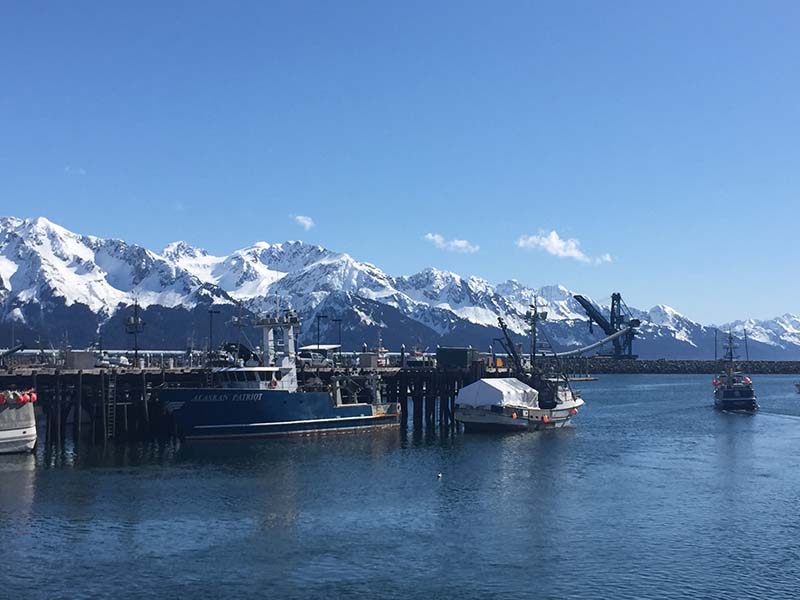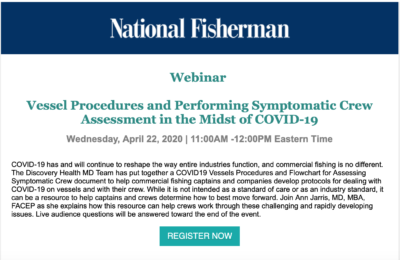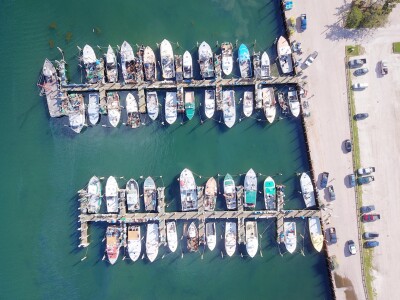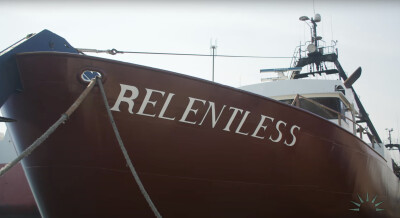Alaska's seafood processing and harvesting sectors are preparing covid-19 emergency plans as some of the state's fishing hubs attempt to enact their own guidelines before workers begin to arrive for the summer harvest season.
The state requires fishermen and businesses supported by workers arriving in the state to submit a travel plan or protocol for maintaining critical infrastructure to [email protected]. The plan should outline how they will avoid:
- the spread of covid-19;
- endangering the lives of people in the communities in which they operate or those of others who serve as a part of that infrastructure; and
- endangering the ability of that critical infrastructure to function.
However, Alaska Public Media reported earlier this week that the governor's office is not making those submitted plans available to the public, including municipal leaders, who are working to ensure the safety of local residents.
Some towns are attempting to enact their own regulations. However, they may run up against an amended rule, issued on April 9, that stipulates only "communities that are removed from the road system, have a population smaller than 3,000 as of the effective date of this order, and do not house a Critical Access Hospital, Sole Community Hospital or Acute Care Hospital" may adopt more stringent travel restrictions than those codified at the state level.
The Southeast city of Wrangell — with a year-round population of 2,400 — was designated a hub by the state, and its attempt to enact more stringent restrictions was rejected.
Cordova officials are requesting that fishermen and processing companies submit action plans to the city as well as the state.
The United Fishermen of Alaska has compiled a resource guide for commercial fishermen.
“We have all the mandates the state has put in place, the UFA updates that we send out weekly, helpful documents to download, the onboard procedures telling fishermen what they need to do to have a season, and a tab for economic relief and links to other resources and websites,” Frances Leach, the association's executive director, told the Anchorage Daily News.
The state has issued somewhat conflicting guidelines, stipulating that all people arriving in Alaska are required to self-quarantine for 14 days and monitor for illness. However, there may be a loophole that allows critical infrastructure workers to report for duty (fishing is considered critical infrastructure in Alaska): "Arriving residents and workers in self-quarantine, should work from home, unless you support critical infrastructure."
The plan submissions would ideally close those loopholes. But without public access to the submitted plans, it may be more difficult to quell community fears of outbreaks.
In the Bristol Bay region, the virus is being compared to the Spanish flu, which decimated the native population 100 years ago.
“Historically, it has wiped out our people, and we just don’t want it to happen again,” Lorianne Rawson, the tribal administrator for South Naknek, told KTOO. “Their boats are in boatyards. Their boats don’t have a bathroom. They have no way to shower, they can’t do laundry, and they can’t go to the store to get their food. So how are they going to effectively quarantine on their boats? That’s not going to happen.”
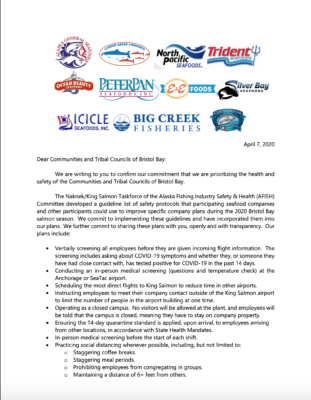 On April 7, 11 processors submitted an open letter to the communities and Tribal Councils of Bristol Bay that included "a guideline list of safety protocols" to be implemented during the 2020 season.
On April 7, 11 processors submitted an open letter to the communities and Tribal Councils of Bristol Bay that included "a guideline list of safety protocols" to be implemented during the 2020 season.
The letter also noted that "this is not a definitive list of all the measures being implemented. Companies will continue to refine their plans as new information and guidance becomes available."
The list follows:
- Verbally screening all employees before they are given incoming flight information. The screening includes asking about COVID-19 symptoms and whether they, or someone they have had close contact with, has tested positive for COVID-19 in the past 14 days.
- Conducting an in-person medical screening (questions and temperature check) at the Anchorage or SeaTac airport.
- Scheduling the most direct flights to King Salmon to reduce time in other airports.
- Instructing employees to meet their company contact outside of the King Salmon airport to limit the number of people in the airport building at one time.
- Operating as a closed campus. No visitors will be allowed at the plant, and employees will be told that the campus is closed, meaning they have to stay on company property.
- Ensuring the 14-day quarantine standard is applied, upon arrival, to employees arriving from other locations, in accordance with State Health Mandates.
- In-person medical screening before the start of each shift.
- Practicing social distancing whenever possible, including, but not limited to:
- Staggering coffee breaks.
- Staggering meal periods.
- Prohibiting employees from congregating in groups.
- Maintaining a distance of 6+ feet from others.
- Limiting the number of plant personnel who have a business need to interact with the local community (“runners”).
- Training runners on social distancing and hygiene practices.
- Following protocols established by local businesses.
- Encourage everyone to handle business indirectly via email, phone calls, mail, or fax.
- Eliminating self-service in the cookhouse.
- Requiring mandatory hand washing or sanitizing to enter the cookhouse.
- Training the cookhouse staff on hygiene practices related to reducing virus transmission.
- Increasing the number of employees on the housekeeping staff and implementing thorough, rigorous cleaning and disinfecting schedule for all high-contact surfaces throughout the plant (doorknobs, handrails, tables, counters, etc.).
- Working with our fishing fleets to minimize their movement within the community and the plant.
- Ensuring any employees who terminate employment before the end of the season are provided with transportation out of King Salmon.
This story was updated on April 17, 2020, to include the letter from the processors to Bristol Bay communities.





